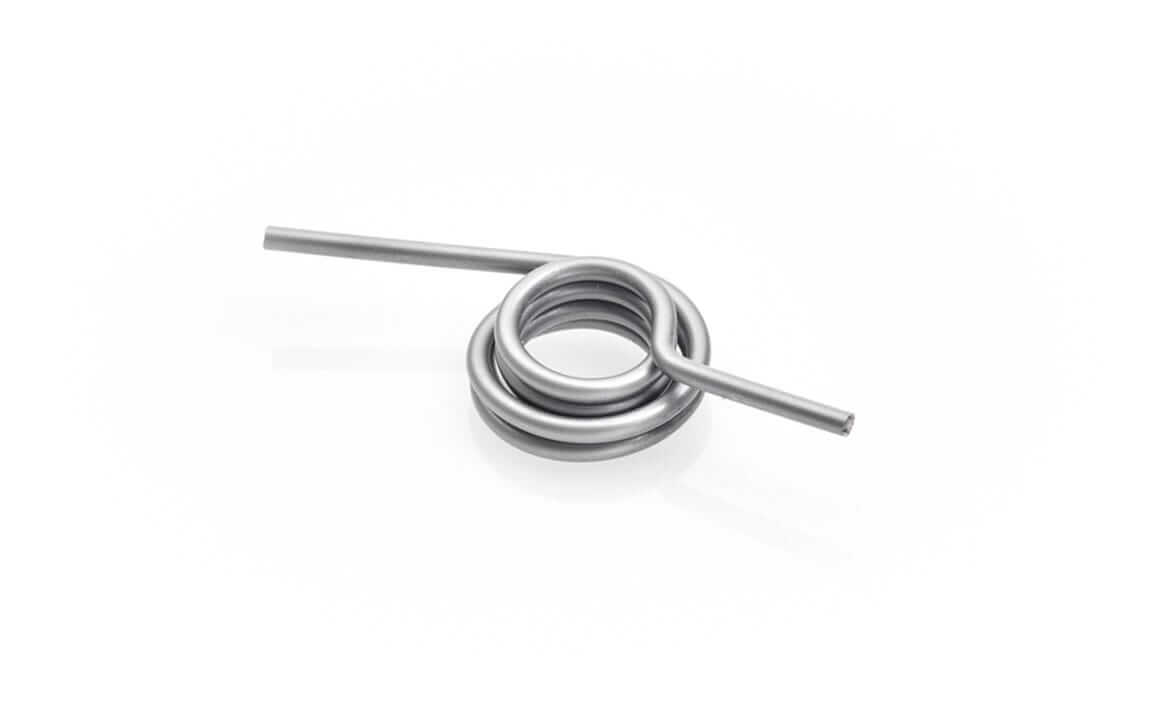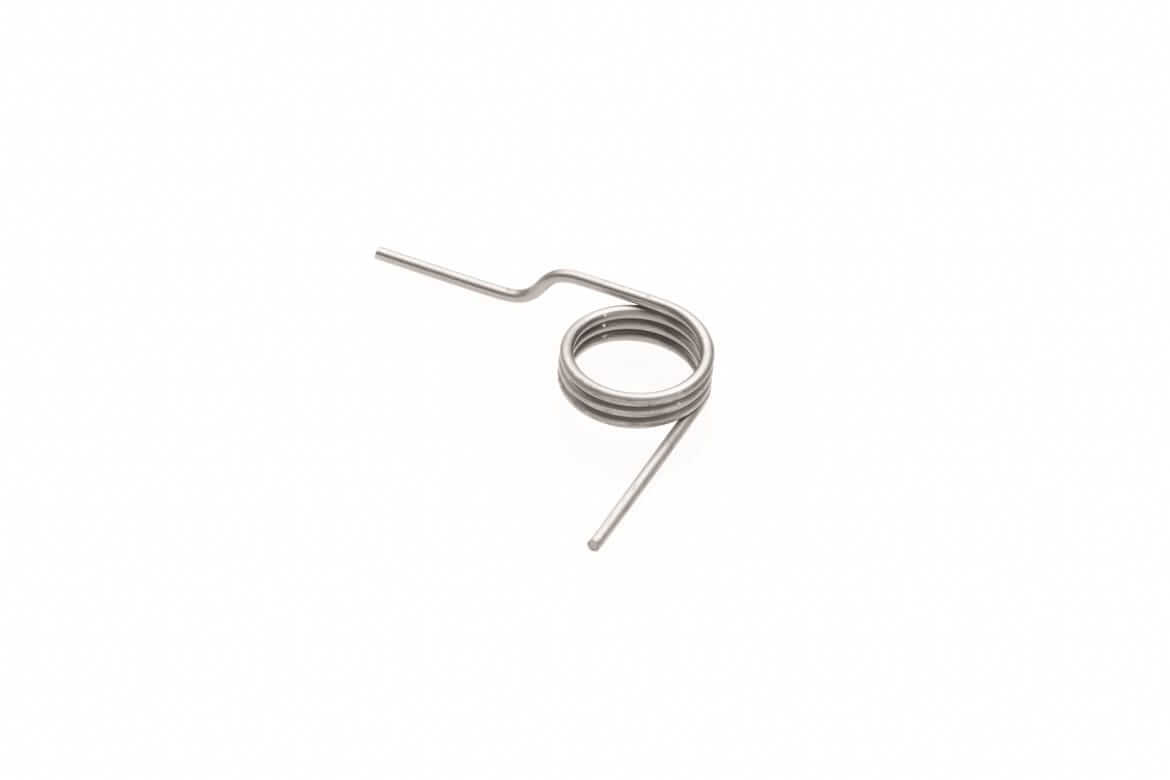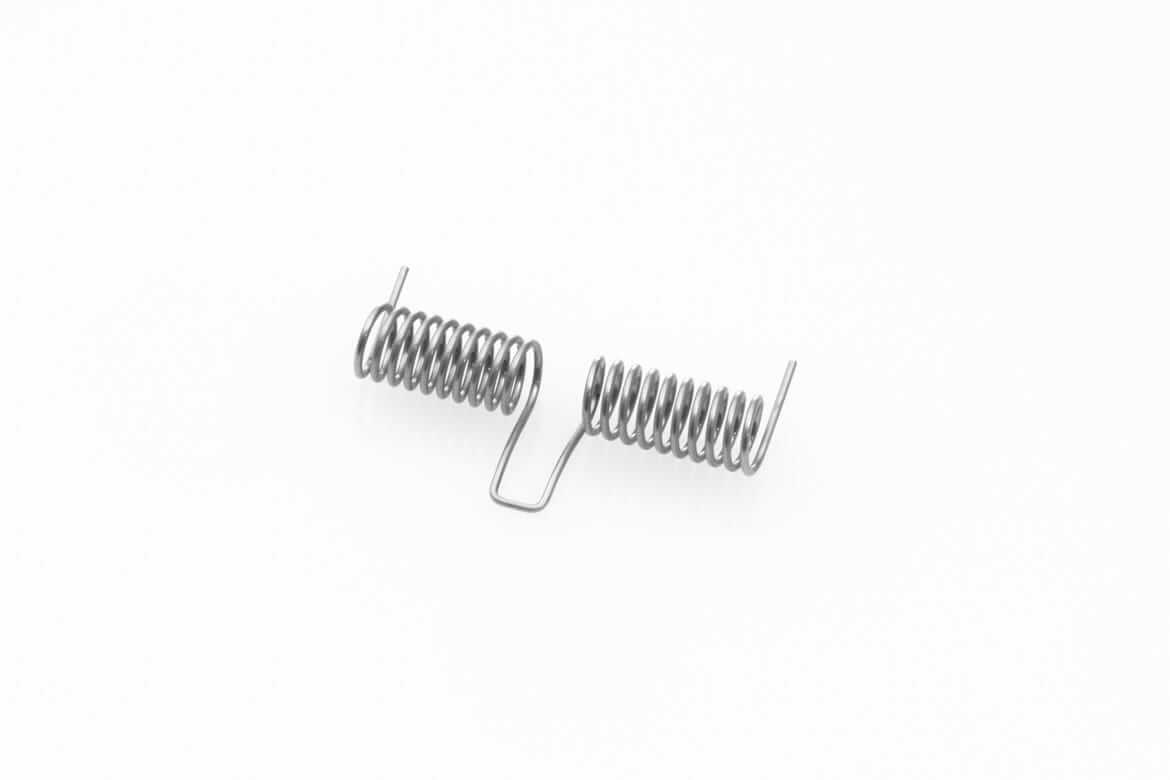Torsion Springs & Torsion Spring Manufacturers
At European Springs, we offer an extensive range of torsion springs, including custom designs tailored to your exact specifications. Our 14 torsion coiling machines and team of experts can help you to select and create a spring that meets your specific criteria. Read more about the benefits of choosing European Springs to create your springs.



From small springs for hinges to extended double length springs, we can manufacture torsion springs that suit your specific requirements. Our torsion springs are manufactured from wire measuring between 0.3mm and 26mm in diameter, although every other consideration – including the material in question – is largely down to your own preferences.
We can create high performance springs to your exact specifications quickly and efficiently. Torsion springs are generally finished straight off the machine, meaning that no secondary operations are required, and this only helps our provision to be as efficient as possible.
From custom end designs, pitching to decrease problematic friction between closely wound coils, a comprehensive range of materials and even ensuring that the strain in fixed assembled legs meets with your blueprint, no development or problem is beyond the capabilities of our engineering team.
Contact our team today to find out more about our expertise in manufacturing your torsion springs.
Advancements in Torsion Spring Design
Advancements in materials science and precision engineering have led to the development of torsion springs that are lighter yet stronger, increasing their efficiency and durability. Innovative applications in robotics and aerospace industries are placing a premium on custom-built torsion springs that offer greater performance without added bulk.
Key considerations for choosing Torsion Springs
When selecting the right torsion spring for your project, consider the following:
- Torque requirements: The amount of force the spring will need to exert.
- Material: Torsion springs are made from a variety of materials, such as stainless steel, carbon steel, and alloy steel, each suited for different environments.
- Coil direction: Torsion springs can be wound in either a clockwise or counterclockwise direction, depending on your application.
Torsion Springs FAQs
What is a Torsion Spring?
Torsion springs are a coiled type of spring that uses a twisting or rotational motion that allows them to store rotational energy. The resulting force is exerted in an opposite direction that is proportional to the angle of the twist. The two most common types of springs are single and double coil varieties, although even within these the more usual design is a helical looped form that looks like a simple coiled wire.
This wire is twisted even tighter by the sideways forces it is exposed to, and some of the most notable applications for these springs are the traditional mousetrap or many types of door hinge.
What makes a torsion spring unique?
Torsion springs are a special type of spring that stores rotational energy, offering resistance or exerting a force based on how they are twisted. Unlike compression or extension springs, torsion springs operate by twisting their ends rather than compressing or extending along a straight axis. This unique function makes them vital in a range of applications, from simple household items like clothes pegs to complex machinery and vehicle components.
How do torsion springs work?
A torsion spring’s functionality comes from its design, which allows it to store mechanical energy when twisted. The legs of the spring are attached to other components, and when those components rotate, the spring’s resistance creates a return force. This makes them especially useful in applications requiring controlled rotational movement.
Torsion springs are available in single or double configurations:
- Single torsion springs: These have one coil and are suited for lower-torque requirements.
- Double torsion springs: These springs consist of two coils that work together, generating higher torque and offering more power for demanding applications.
What are Common uses of torsion springs?
Torsion springs are incredibly useful when it comes to manufacturing and can be found in:
- Automotive components (e.g., boot lids, throttle return systems)
- Garage doors and hinges
- Mousetraps and clipboards
- Washing machines
- Wind-up toys
As technology continues to advance, torsion springs are seeing increased use in more complex machinery, such as medical devices and renewable energy systems. Torsion springs are present in everyday objects such as washing line pegs, door hinges, and clipboards. Industries including agriculture and construction find frequent uses for torsion springs, but due to their versatility they have a wide range of applications in many different industries.